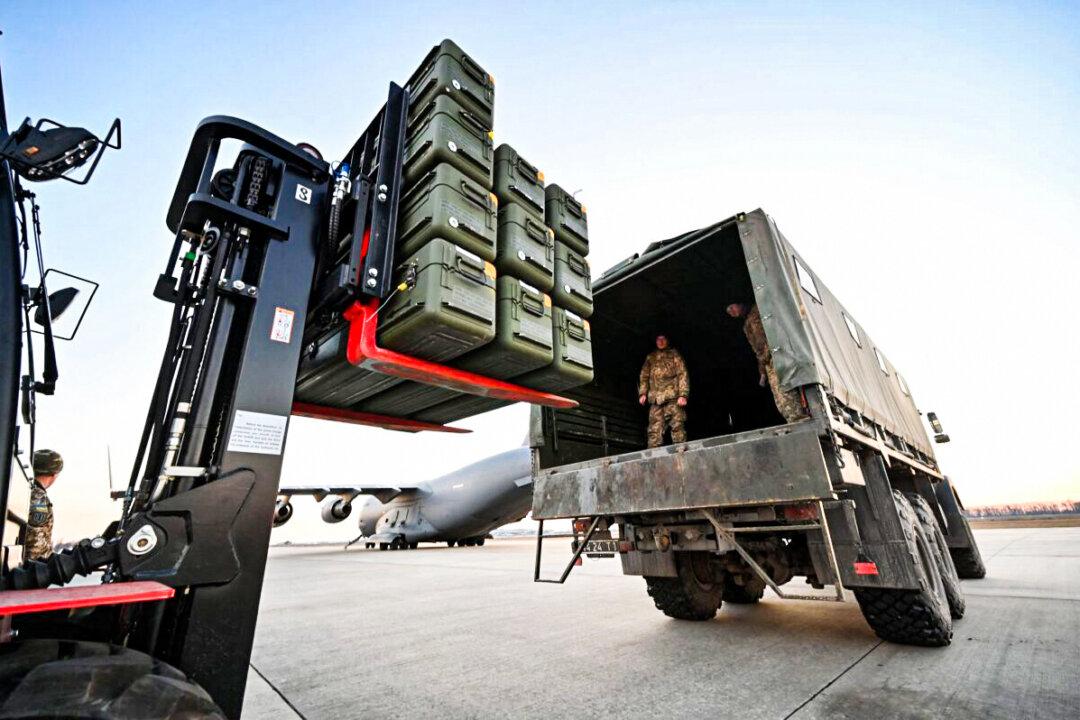The United States would likely run out of critical munitions during a major conflict with China’s communist regime due to its inability to adequately mobilize the defense industrial base, according to a new report.
The report, titled “Empty Bins in a Wartime Environment,” examines how the United States has depleted key arms reserves by supplying Ukraine’s resistance against Russian invasion, and extrapolates how a similar situation could negatively impact the nation in a wartime scenario.




